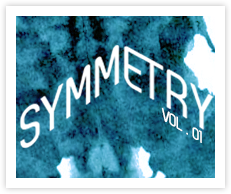

How about a little empathy, Twitter?
Jamie Gillingham // January 25, 2013

It’s as unlikely as having a radio in the first place that you’ll tune into your favourite station, turn on the television, or open up your laptop and visit CNN without being subject to shitty news. In fact, getting that shitty news from any of those media is as clichéd as writing about it. In 2013, if you aren’t learning about Hillary Clinton’s blood clot or the 20-something that ate his boyfriend in 140 characters or less, you aren’t learning about them at all.
If I could Back to the Future myself, I’d tell a younger, skinnier version of my father that in twenty-odd years he’ll be able to read live tweets from inside an elementary school massacre, and my gut says he would ask two questions: ‘What the hell is a tweet?’ and ‘Why aren’t we doing something to help?’ And, while my father’s altruism wouldn’t have been entirely plausible, that doesn’t mean it would have been insincere or even wrong.
A couple decades ago, when 140 characters wasn’t a satisfactory explanation for a gang rape on a bus in Punjab, my father’s heart would have ached for that young girl long after he left the chair where he watches the evening news. And while I’m certain both he and many empathize across the globe today, I’m not sure it’s for longer than it takes the tweet to disappear beneath an 89-character description of what Lena Dunham wore to lunch. If tragedy is a scrape on society’s knee, social media is the band-aid that hides it.
Does every status update and mid-dinner tweet diminish our ability to feel empathy for others? Does our ability to feel affected by tragedy last no longer than it takes to hit share? If this is the case – how do we stop?
Let me start by saying I’m not insinuating we boycott Twitter. I’m not trying to tell everyone how to use it. I’m just proposing that the underlying vapidity of social media is coming to fruition and I’m using myself as an at-risk case. I’m on Twitter; I tweet. I write status updates and blog posts. I like photos and I Instagram. I follow CNN and Time Magazine, CBC, The New York Times and The Globe and Mail. I read posts about elementary school massacres, teen suicide and gang rape in Punjab. I know what’s happening.
But I also follow JustJared and GQ, Lindsay Lohan, Vogue and Brody Jenner. I read posts about fall runways, reality T.V., and the unpleasantness of seeing Anne Hatheway’s genitals. And I’m afraid that somewhere along the newsfeed, I’ll get lost in the white headline noise. I’m afraid I’ll stop following the link that explains what Indian women have to say about rape in their country or that I’ll stop reading about citizen uprisings in Syria, about First Nation peoples looking for a better life. I’ll know these things are happening, because I’ll read 140 characters briefly explaining so, but I’m worried I’ll stop feeling these things. I’m worried I’ll become satisfied with those reductive 140 characters and move on to the next, what should be, crippling headline.
I’m proposing that because we read about tragedy for 15 seconds, we run the risk of feeling about tragedy for 15 seconds; that because someone isn’t tweeting about the kid in Northern Nova Scotia who needs a new wheelchair, no one will know and by consequence care; that the lesbian couple who were given a letter ordering that they leave a restaurant won’t be free of oppression after we stop sharing the headline; that Amanda Todd’s mother will continue to grieve long after we’ve reposted her daughter’s picture on our Facebook profile.
Despite the sheer amount we have to sort through as a digitally social generation, and despite my worry, I don’t believe I’ll ever stop caring entirely. I think, instead, I’ll become even more saturated and maybe start to care less or carry the residual feeling for a shorter time. I mean, it just makes sense, it’s impossible for us to care for every other person as deeply and as wholly as we care for the few we hold dear. Which is frightening because I think it’s important that we care and that we do it passionately and with full commitment. Caring begets relation, relation begets empathy and empathy, well, empathy begets change. And change is in high demand.
That being said, I can’t be certain what social media will do to anyone else’s ability feel and if it does anything at all, how they’ll stop it, or if anyone other than me is even worried. Maybe you aren’t, maybe you’ll always click-through, and maybe three weeks after you read a tweet about a Jamey Rodemeyer, you’ll ride the bus wondering what you can do to help. Right now, I still wonder, but I’m worried that someday I won’t. That someday, I’ll be too busy hitting refresh.
